
Bloomsbury Summer School
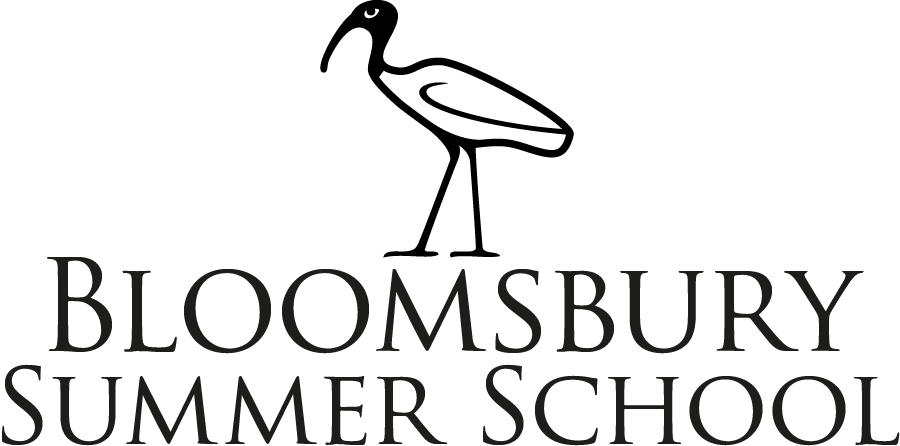
Fascinated by ancient civilisations?
We offer anyone with any level of knowledge, inspiring short courses on ancient Egypt and other areas of the ancient world.
BSS Director, Course Directors, and Study Day Speakers
BSS Director
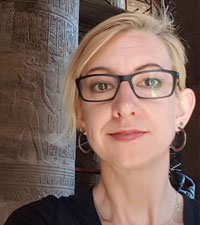
Kathryn E. Piquette received her PhD in Egyptology from University College London (UCL), specialising in early Egyptian writing and art. In addition to lecturing at the UCL Institute of Archaeology, Kathryn is an Honorary Senior Research Fellow at the UCL Department of Information Studies and the Centre for Digital Humanities, where she teaches digital approaches to cultural heritage and works as an imaging specialist for UCL Advanced Imaging Consultants. Kathryn took over directorship of BSS in 2019, having directed and coordinated several BSS courses over the past two decades. A longstanding member of the Friends of the Petrie Museum, Kathryn has served as Student Representative and Membership Officer, and is now a member of the Board of Trustees. She is also a member of the Egypt Exploration Society. Her archaeological fieldwork includes excavation in Peru, Jordan (Petra), and Egypt (Wadi Natrun, Hierakonpolis, Giza), and work as advanced digital imaging specialist at Qubbet el-Hawa, Deir Anba Hadra, Philae Temple, the C2 Project: Royal Cache Wadi survey, and several other projects in Egypt. Among her publications is the Open Access monograph An Archaeology of Art and Writing: Early Egyptian labels in context (2018) with supporting online database, and the freely available co-edited volume Writing as Material Practice: Substance, surface and medium (2013). She is also working on publications on the Narmer Palette, Palermo Stone, and the Shabaqo Stone.
BSS 2025 - 2026 Course Directors

Christoph Bachhuber is an archaeologist who specialises in the earliest cities and states of Western Asia with a regional, fieldwork focus on ancient Anatolia / modern Türkiye. As Co-Director, he recently completed the Konya Regional Archaeological Survey Project (KRASP) including research on the landscapes of the UNESCO World Heritage Site at Neolithic Çatalhöyük and a new Hittite city that was discovered by KRASP. Christoph is Lecturer in Archaeology at St. John’s College, University of Oxford and is Teaching Associate in Archaeology in the Faculty of Asian and Middle Eastern Studies (Oxford).
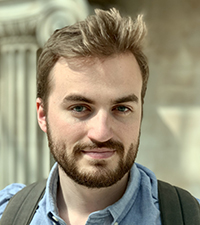
Kit Devine recently finished his MPhil in Egyptology at the University of Oxford, where he studied Demotic and Graeco-Roman hieroglyphs and wrote a thesis on the Narmouthis ostraca. His current research is focused on multilingualism and multiculturalism during the Graeco-Roman period. He previously studied Egyptology and Classics at the University of Liverpool (BA), where he also studied Old, Middle, and Late Egyptian, Coptic, Greek, and Latin.
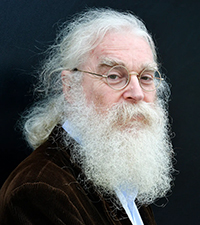
Irving Finkel is the Assistant Keeper of Ancient Mesopotamian script, languages and cultures in the Department of the Middle East in the British Museum. He learned cuneiform from Prof. W. G. Lambert at the University of Birmingham and wrote his PhD thesis on spells for the exorcism of demons. Subsequently, he was Research Associate at the University of Chicago, and Assistant to Miguel Civil. In 1979, he was appointed to his post at the British Museum, given keys to the cupboards where some 120,000 tablets are stored, and has been looking after and researching the collection ever since. He is especially interested in Mesopotamian literature, ideas, medicine, and magic, and is committed to explaining cuneiform and the world of Mesopotamia accurately to as wide a public as possible.

Christina Geisen received her PhD in Egyptology from the University of Toronto in 2012. Following a postdoctoral fellowship from Canada’s Social Sciences and Humanities Research Council (SSHRC), she held academic positions at Yale, Oxford, and Cambridge before joining the British Museum as Curator of Egyptian Written Culture. Her research focuses on funerary, ritual, and magical texts, as well as human-environment interactions in ancient Egypt. She applies approaches from materiality studies and cognitive linguistics and has developed a growing interest in digital humanities and the application of technological methods to Egyptological research.
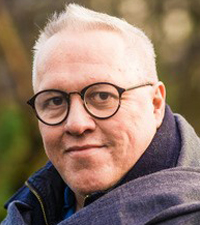
Lloyd Llewellyn-Jones holds the Chair in Ancient History at Cardiff University. He has written widely for both academic and public audiences. His books include: The Cleopatras: The forgotten queens of Egypt; Persians: The age of the great kings; The Culture of Animals in Antiquity; Ancient Persia and the Book of Esther; and Designs on the Past: How Hollywood created the ancient world. His work has featured in BBC History Magazine, History Today, and BBC World History and he has often appeared on the BBC, Channel 4, Netflix, and on other media outlets. Future publications include Babylon: The great city for Wildfire Books and The Harem in the Ancient Near East for Palgrave MacMillian.
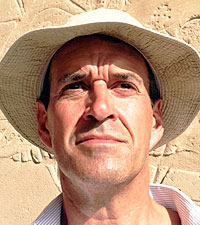
Bill Manley is a best-selling author, who has taught at Bloomsbury Summer School since the early 1990s. He was formerly Senior Curator for Ancient Egypt at National Museums Scotland and taught Egyptology and Coptic at the Universities of Glasgow, Liverpool, and London. He works with the C2 Project: Royal Cache Wadi survey, Bill is Honorary President of Egyptology Scotland, a contributor to the Coptic Magical Papyri Project, and Co-Director of Egiptología Complutense. Bill has spoken at several international book festivals, including The Sunday Times Literary Festival, and his latest book, The Oldest Book in the World, will be published by Thames and Hudson in June.

Marcel Marée is Assistant Keeper at the Department of Egypt and Sudan in the British Museum, with expertise in pharaonic material culture, epigraphy, provenance research, and the art market. In 2018, he initiated the Circulating Artefacts (CircArt) project, designed to monitor, document, and analyse cultural artefacts seen in the trade, and to detect irregularities. Twice supported by the British Council’s Cultural Protection Fund, the project is now being prepared for adoption on a higher institutional level. Marcel lends frequent expertise to heritage professionals and relevant authorities in Europe, North America, and MENA countries with regard to antiquities sourced illegally from Egypt and Sudan. He speaks at conferences and workshops about heritage crime in source, transit, and destination countries, hosted by INTERPOL, the World Customs Organization (WCO), the Organization for Security and Co-operation in Europe (OSCE), the European Union Agency for Law Enforcement Training (CEPOL), the Association for Research into Crimes against Art (ARCA), and many police, academic, and educational institutions. Marcel is a founding member of the OSCE’s Heritage Crime Task Force.
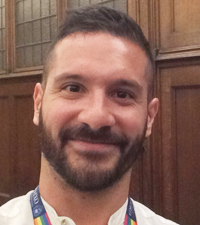
Luigi Prada was educated in both Egyptology and Classics, firstly in Italy and then in Oxford. He works primarily on textual and cultural-historical studies, with a focus on the later phases of Egypt's history and language(s) / scripts. He has held academic positions in the UK, Germany, and Denmark, and is now Associate Professor of Egyptology (Dr. habil., tenured) at Uppsala University, Sweden. He is an Honorary Research Associate in Egyptology at the Griffith Institute (University of Oxford) and is also active in the field, both in Egypt as Assistant Director of the Oxford Epigraphic Expedition to Elkab (Ashmolean Museum / Uppsala University), and in the Sudan. In Italy, he is the president of Associazione Amici Collaboratori del Museo Egizio di Torino (Society of Friends of the Museo Egizio, Turin).

Penelope Wilson is an Emeritus Professor at the Department of Archaeology Durham University. She has worked in Egypt at many sites and has directed fieldwork at Sais since 1997. She is also the Director of the Delta Survey project for the Egypt Exploration Society which surveys and records sites across the north of Egypt. Her interests include religious life in Egypt, Ptolemaic temples, pottery, and settlements in the Delta.
BSS Previous Course Directors

Heba Abd el Gawad an Egyptian Egyptologist, received her PhD from Durham University. She specialises in the history of Egyptian archaeology and Egyptian perceptions and representations of ancient Egypt. Heba is a researcher for the AHRC-funded project: 'Egypt’s Dispersed Heritage: Views from Egypt' at the UCL Institute of Archaeology, which aims to amplify the voices, visibility, and validity of modern Egyptian communities in UK museums. She co-curated the Two Temple Place 2016 exhibition "Beyond Beauty: Transforming the body in ancient Egypt', and is also project curator for the British Museum's Asyut Project. More recently she guest curated the 'Listen to her! Turning up the Volume on Egypt’s Ordinary Women' exhibition at the UCL Petrie Museum of Egyptian Archaeology. Heba was selected as one of the most influential 21 Egyptian women in 2021 for her community work in the heritage sector.
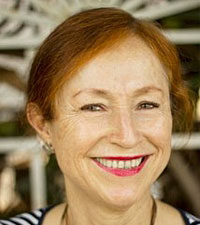
Elizabeth Baquedano is an Honorary Senior Lecturer at the UCL Institute of Archaeology, where she also obtained her PhD. She was elected Fellow of the Society of Antiquaries, London in 2021. Elizabeth gives regular gallery talks and lectures at the British Museum and around the world. Some of her publications include Tezcatlipoca: Trickster and supreme deity (2014) and Aztec Sculpture (1994), chapters in Los Animales y el Recinto Sagrado de Tenochtitlan (2022) and Living with the Dead: Mortuary ritual in Mesoamerica (2011). She is also co-editor of Birds and Beasts of Ancient Mesoamerica (2023).

Henry Cosmo Bishop-Wright studied Classics and Ancient History at the University of Exeter (BA, MA), where he also completed a PhD (2021) examining the Egyptian-Nubian frontier c.300 BCE – 300 CE. He subsequently co-curated the British Museum exhibition Luxury and Power: Persia to Greece (2023). Henry is currently a Post-doctoral Research Associate (Leverhulme) at Cardiff University where he is working on Saqqara’s Sacred Animal Necropolis. His chief research interests revolve around Meroitic Nubia, particularly its cultural and economic position within the wider Hellenistic-Roman world (Afro-Eurasia). Henry is also a Fellow of the Society of Antiquaries of London (FSA).

Elizabeth Bloxam is Visiting Professor of Egyptology at Northeast Normal University, Changchun, China. Her research interests and scholarly recognition have centred on ancient society and technology in Egypt and the Eastern Mediterranean. She has held lecturing posts at leading universities in the UK, Australia, and China, and has led multi-disciplinary surveys and excavations in some of Egypt’s most important ancient quarry and mining sites. She is currently directing fieldwork in the Wadi Hammamat region of Egypt’s Eastern Desert and has published widely in international journals such as World Archaeology and Cambridge Archaeological Journal, and is co-editor of The Oxford Handbook of Egyptology.
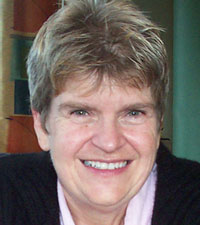
Bernadette Brady is a lecturer on Egyptian religious astronomy and sacred landscapes. She holds a PhD in Anthropology (2012), an MA in Cultural Astronomy and Astrology (2005), and an MA in Egyptology (2022). Since 2008 she has been a tutor in the Sophia Centre for the Study of Cosmology in Culture at the University of Wales Trinity Saint David, where she lectures on sacred geography and cultural astronomy. In her Egyptology work, she is a co-director of the Kemet Klub. She has lectured to tour groups in Luxor and Abydos. Her research interests lie in varying forms of cultural astronomy and astrology and sacred geography.
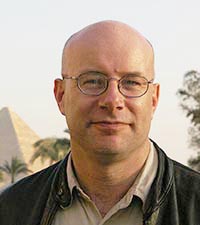
Aidan Dodson is Honorary Professor of Egyptology at the University of Bristol, where he has taught since 1996. A graduate of Liverpool (BA) and Cambridge (MPhil, PhD) he was Simpson Professor of Egyptology at the American University in Cairo for the Spring of 2013, and Chair of Trustees of the Egypt Exploration Society from 2011 to 2016. Elected a Fellow of the Society of Antiquaries of London in 2003, he is the author of over 20 books, including on the royal tombs of Egypt and on those of the UK.
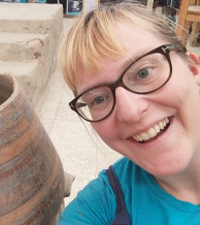
Sarah K. Doherty is a Ceramicist for the Amarna Project's Great Aten Temple, a Buildings Archaeologist in the UK Commercial Archaeology Sector, and is an Archaeology Tutor at Oxford University. She undertook her BA and MA at UCL, and her PhD at Cardiff University focussing on Egyptian ceramics and technology. This was published in 2015 as The Origins and Use of the Potter's Wheel in Ancient Egypt. Sarah's research interests include pottery, settlement archaeology, experimental reconstruction of ancient craft, and ancient technology. Sarah has worked at a wide variety of sites in Europe Egypt, and the Sudan, including Gebel el-Silsila, Heit el-Gurob, Amara West, Amarna, and the Valley of the Kings. Sarah is at her happiest digging up complete huge pots in New Kingdom sites.
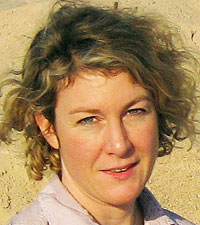
Lucia Gahlin Lucia Gahlin directed BSS from 2009 to 2019, having taught BSS courses and played a role in its organisation since 1994. She lectures widely on ancient Egypt and leads archaeological tours to Egypt (including for Andante Travels). She has worked at the UCL Petrie Museum of Egyptian Archaeology, particularly on its material from Amarna. She has been Honorary Research Associate at the UCL Institute of Archaeology, Chair of the Friends of the Petrie Museum, and Trustee of the Egypt Exploration Society. She has worked as Small Finds Registrar at Tell el-Amarna in Egypt Her publications include Egypt: Gods, myths and religion (2001), and chapters in Wilkinson's The Egyptian World (2007).
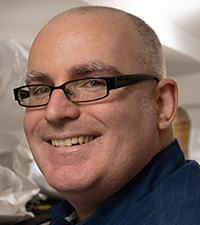
Ken Griffin is the Curator of the Egypt Centre, Swansea University. Prior to this, he was the Collections Access Manager (2019–2022) at the museum. Ken is a former lecturer in Egyptology (2015–2018) and the coordinating tutor of Egyptology (2003–2014) with the Department of Adult Continuing Education (DACE), both at Swansea University. Since 2010, he has participated in fieldwork in Egypt (Abydos, Valley of the Kings, Western Thebes) and Sudan (Sai Island). He is the author of the monograph All the Rḫyt-people Adore: The role of the Rekhyt-people in Egyptian religion published in 2018 (Golden House Publications), as well as three edited books, and over 20 articles.
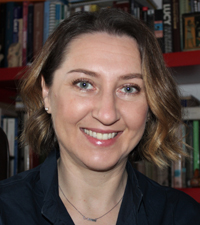
Iwona Kozieradzka-Ogunmakin is Lecturer at the University of Exeter, Honorary Associate Researcher at the University of Manchester and Honorary Curator of Human Remains at the Manchester Museum. Over the past 20 years, she has worked extensively in Egypt (Tell el-Farkha, Saqqara, and Thebes) and the Sudan (Dongola Reach, Hamadab near Meroe, and Jebel Moya) in collaboration with multidisciplinary research teams, investigating various aspects of life and death of ancient populations. Her research is focussed on the relationship between humans and their environment in the Nile Valley, health, disability, and care, as well as ancient burial practices. Recent publications include chapters in: Early Makuria Research Project: El-Zuma cemetery (Vol. 1) and Life Histories of Theban Tombs: Transdisciplinary investigations of a cluster of rock-cut tombs at Sheikh 'Abd el-Qurna.
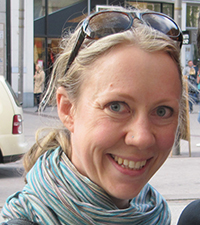
Claire Malleson is Assistant Professor of Archaeology at the American University of Beirut. After completing a Diploma in Egyptology at Birkbeck College, and many BSS summer school courses, she studied Egyptian archaeology at the University of Liverpool. Claire completed her PhD in 2012, which was published as The Fayum Landscape: Ten thousand years of archaeology, texts, and traditions in Egypt by AUC press in 2019. Since 2003, she has worked on excavations at Zawiyet Umm el-Rakham, Medinet el-Gurob, Giza, Ain Sukhna, Elephantine, Sais, Naukratis, Tell el-Borg, and Tell el-Retaba, specialising in the study of ancient plant remains with focus on the study of ancient Egyptian agriculture.
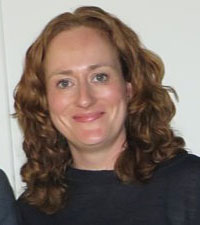
Lidija McKnight holds a BSc in Archaeology from the University of York and a PhD in Biomedical Egyptology from the University of Manchester. Her major research interest is the application of non-invasive imaging to human and animal mummies. She is currently completing her third post-doctoral research project funded by the Arts and Humanities Research Council investigating so-called ‘fake’ mummies. Lidija is founder and curator of the Ancient Egyptian Animal Bio Bank, Honorary Curator of Archaeozoology at the Manchester Museum, and project curator for the touring exhibition Gifts for the Gods: Animal mummies revealed.
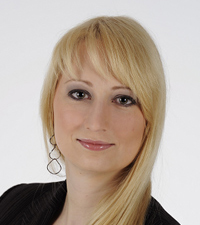
Franziska Naether (Saxon Academy of Sciences and Humanities) is adjunct assistant professor at Leipzig University in Germany (Egyptological Institute / Egyptian Museum) and Stellenbosch University in South Africa (Department of Ancient Studies). She is head of the Digital Rosetta Stone Project and has published widely on ancient religion, magic, and literature. Her other research interests include the history and society of Graeco-Roman Egypt, Museology, reception of Egypt, and Digital Humanities.
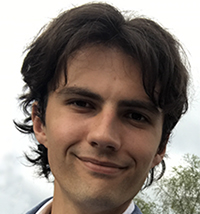
Jack Neighbour is a PhD student of Ancient History at Cardiff University, where he specialises in Achaemenid concepts of the body and teaches seminars on introductory Old Persian. A graduate of Leiden University (MA) and Cardiff University (BA), he has studied Ancient Near Eastern History and aspires to become an independent postdoctoral researcher after graduation. Other interests include Old Iranian linguistics and educational outreach.

Paul T. Nicholson is Professor Emeritus of Egyptian Archaeology at Cardiff University. He has directed excavations in Egypt at sites such as Tell el-Amarna, Memphis, and Saqqara, as well as working with colleagues at sites such as Hatnub and Berenike. He is co-editor (with Ian Shaw) of Ancient Egyptian Materials and Technology (2000), and author of Brilliant Things for Akhenaten: The production of glass, vitreous materials and pottery at Amarna site O45.1 (2007), and Working in Memphis: The production of faience at Roman period Kom Helul (2013), as well as numerous papers on technology, animal cults at Saqqara, and photography in Egypt.
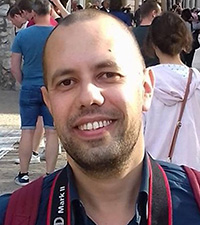
Massimiliano Nuzzolo received his PhD in 2010 from l’Orientale University of Naples, Italy, with a thesis on the sun temples of the Fifth dynasty and the royal ideology of the Old Kingdom. He joined the French Institute of Oriental Archaeology in Cairo (IFAO) where he conducted research on the spatial distribution of Old Kingdom tombs in the Memphite area. In 2016, he became a Research Associate at the Czech Institute of Egyptology, Charles University Prague, where he directs an interdisciplinary research project on the rise and development of the solar cult. Since 2010, he co-directs the Italian archeological expedition at the sun temple of Niuserra at Abu Ghurab. Among his publications is the co-authored Fifth Dynasty Sun Temples: Kingship, Architecture, and Religion in Third Millennium BC Egypt (2019).

Michael Oakey is Vice-Chairman of Sussex Egyptology Society — a Registered Charity and one of the UK’s leading regional groups of its kind. He has been passionate about Egyptology since childhood, with a particular interest in how objects are made. Alongside a four-decade career as an aviation-history journalist, editor, and publisher, he has made time to attend BSS every year since 1994 (including occasional teaching), and has developed a keen interest in ancient Egyptian stonecarving techniques. His Egyptological publications include articles in national newspapers and in the much-missed Kmt magazine.
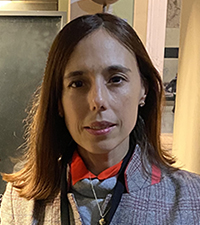
Cecilia Pardo is an archaeologist and curator. Between 2006 and 2019, she worked at the Museo de Arte de Lima, where she curated more than 15 exhibitions and published on various topics relating to pre-Columbian history. Her exhibition project include Modelling the World: Images of pre-Columbian architecture, Nasca, and Khipus: Our history in knots, some of which then travelled to museums in New York, Zurich, Bonn, and Madrid. In 2020, she joined the British Museum, where she was responsible for the exhibition Peru: A journey in time and the newly opened permanent display of Peruvian and Andean culture. She has published extensively on the history of Andean collections and museums, and most recently the exhibition catalogue co-edited with Dr Jago Cooper: Peru: A journey in time (British Museum Press). Cecilia has an MA in Museum Studies from UCL and obtained her PhD from the University of East Anglia.
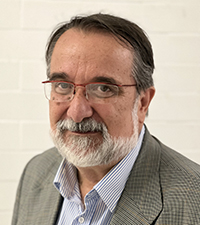
José-Ramón Pérez-Accino is Senior Lecturer in Egyptology and Ancient History at the Complutense University of Madrid. He specialises in Egyptian literature, texts, and the intellectual world of the ancient Egyptians. In addition to being Co-Director of Egiptología Complutense with Bill Manley, he conducts fieldwork in Egypt, including at Ehnasya el-Medina (Herakleopolis Magna) and Western Thebes, where he is now Co-Director of the C2 Project: Royal Cache Wadi survey. He has taught Egyptology for the University of London's Birkbeck College and University College London. He has directed many highly acclaimed courses for BSS, often regarded by our students as some of the most challenging and thoughtful courses we offer.
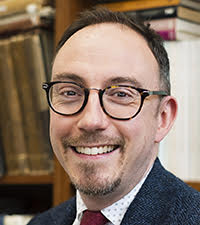
Campbell Price is Curator of Egypt and Sudan at the University of Manchester's Manchester Museum, one of the UK’s largest Egyptology collections. He has a PhD in Egyptology from the University of Liverpool, where he is an Honorary Research Fellow. His research focusses on elite monuments of the First Millennium BCE, particularly on sculpture, and the representation of ancient Egypt in museums. Recent publications include: Pocket Museum: Ancient Egypt (2018); Golden Mummies of Egypt: Interpreting identities from the Graeco-Roman Period (2023); and Brief Histories: Ancient Egypt (2024). Campbell is Chair of Trustees of the Egypt Exploration Society.

Ian Shaw is Senior Research Fellow in Egyptian Archaeology at the University of Liverpool. His research focuses primarily on ancient human activity in urban contexts and remote desert environments. His fieldwork includes excavation at Tell el-Amarna, Memphis, and Gurob, as well as survey and excavation at many Egyptian quarrying and mining sites. His publications include The Oxford History of Ancient Egypt (2000), Ancient Egyptian Materials and Technology (2000, co-edited with Paul Nicholson), Hatnub: Quarrying travertine in ancient Egypt (2010), Ancient Egyptian Technology and Innovation: Transformations in Pharaonic material culture (2012), and The Oxford Handbook of Egyptology (2020; co-edited with Elizabeth Bloxam).
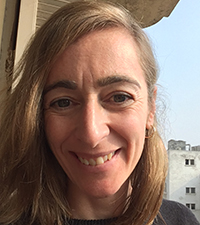
Anna Stevens is an archaeologist who specialises in the study of urban and non-elite life in ancient Egypt. She has worked at sites including Amarna, Sesebi, Amara West, and in the Dakhleh Oasis. Her publications include Private Religion at Amarna, Akhenaten’s Workers, and the multi-authored Amarna: A Guide to the Ancient City of Akhetaten. She is Lecturer in Archaeology at Monash University, Assistant Director of the Amarna Project (University of Cambridge) and in 2023 will be Simpson Visitor Professor in Egyptology at the American University in Cairo.
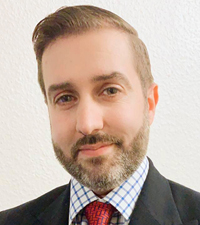
Matt Szafran is an independent researcher specialising in the study of ancient tools and technologies. His current research focusses on the manufacture and use of stone palettes in Predynastic Egypt, using experimental archaeology and advanced imaging technologies, such as microscopy and Reflectance Transformation Imaging (RTI) to complement textual studies. Matt has lectured on predynastic palettes, assisted in the teaching of RTI workshops, has published in peer-reviewed journals and magazines, and is currently writing a book discussing the possible uses of predynastic palettes.
BSS Remembers
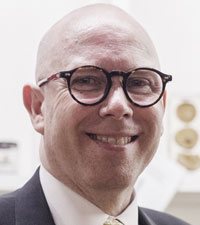 John J. Johnston (1965 - 2025) was a freelance Egyptologist, Classicist, and cultural historian. His research interests encompassed mortuary belief and practice, gender, and sexuality, Hellenistic and Roman Egypt, the history of Egyptology, and the reception of ancient Egypt in the modern world. John lectured extensively at various institutions across the UK and Europe. A former Vice-Chair of the Egypt Exploration Society, John also served on the Editorial Board of the journal Egyptian Archaeology (2011 – 2020) and has co-edited several volumes, including Narratives of Egypt and the Ancient Near East: Literary and linguistic approaches (2011), A Good Scribe and an Exceedingly Wise Man (2014), and a collection of classic mummy fiction, Unearthed (2013).
John J. Johnston (1965 - 2025) was a freelance Egyptologist, Classicist, and cultural historian. His research interests encompassed mortuary belief and practice, gender, and sexuality, Hellenistic and Roman Egypt, the history of Egyptology, and the reception of ancient Egypt in the modern world. John lectured extensively at various institutions across the UK and Europe. A former Vice-Chair of the Egypt Exploration Society, John also served on the Editorial Board of the journal Egyptian Archaeology (2011 – 2020) and has co-edited several volumes, including Narratives of Egypt and the Ancient Near East: Literary and linguistic approaches (2011), A Good Scribe and an Exceedingly Wise Man (2014), and a collection of classic mummy fiction, Unearthed (2013).
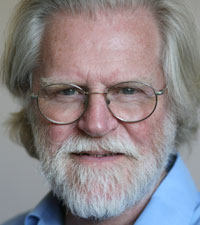 Barry Kemp (1940 - 2024) was Emeritus Professor of Egyptology at the McDonald Institute for Archaeological Research, University of Cambridge. He was Field Director at Tell el-Amarna from 1977 - 2024, pioneering excavations formerly for the Egypt Exploration Society, and subsequently as The Amarna Project supported by the Amarna Trust.
Among his important publications are Amarna Reports, I–VI (1984 – 1995), and Ancient Egypt: Anatomy of a civilisation (2006).
Barry Kemp (1940 - 2024) was Emeritus Professor of Egyptology at the McDonald Institute for Archaeological Research, University of Cambridge. He was Field Director at Tell el-Amarna from 1977 - 2024, pioneering excavations formerly for the Egypt Exploration Society, and subsequently as The Amarna Project supported by the Amarna Trust.
Among his important publications are Amarna Reports, I–VI (1984 – 1995), and Ancient Egypt: Anatomy of a civilisation (2006).
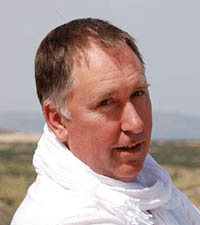
Robert Morkot (1957 - 2025) gained his BA and PhD from University College London, with part of his postgraduate studies spent at Humboldt University of Berlin. He then held a post-doctoral position at the University of Oxford and has since taught for many years in various UK universities. Robert worked on the Eastern Marmarica Coastal Survey, as well as serving as Chair of the Society for Libyan Studies and on the Committee and Board of the Egypt Exploration Society. Robert was President of the Friends of the Petrie Museum and Chair of the Association for the Study of Travel in Egypt and the Near East (ASTENE). As an Ancient Historian, many of his interests revolved around interconnections in ancient societies. His best-known books are The Black Pharaohs: Egypt’s Nubian rulers (2000), and (with colleagues) the controversial Centuries of Darkness: A challenge to the conventional chronology of Old World archaeology (1991).


